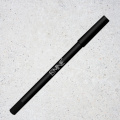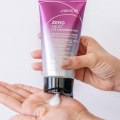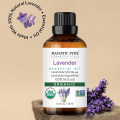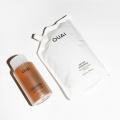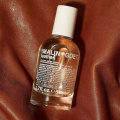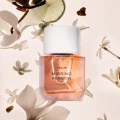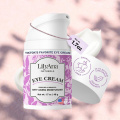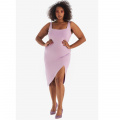Do you know the difference between Baking Powder and Baking Soda?
Do you (too) want to become a more robust baker? It's simple - learn the ground difference between baking powder and baking soda AND never forget them!
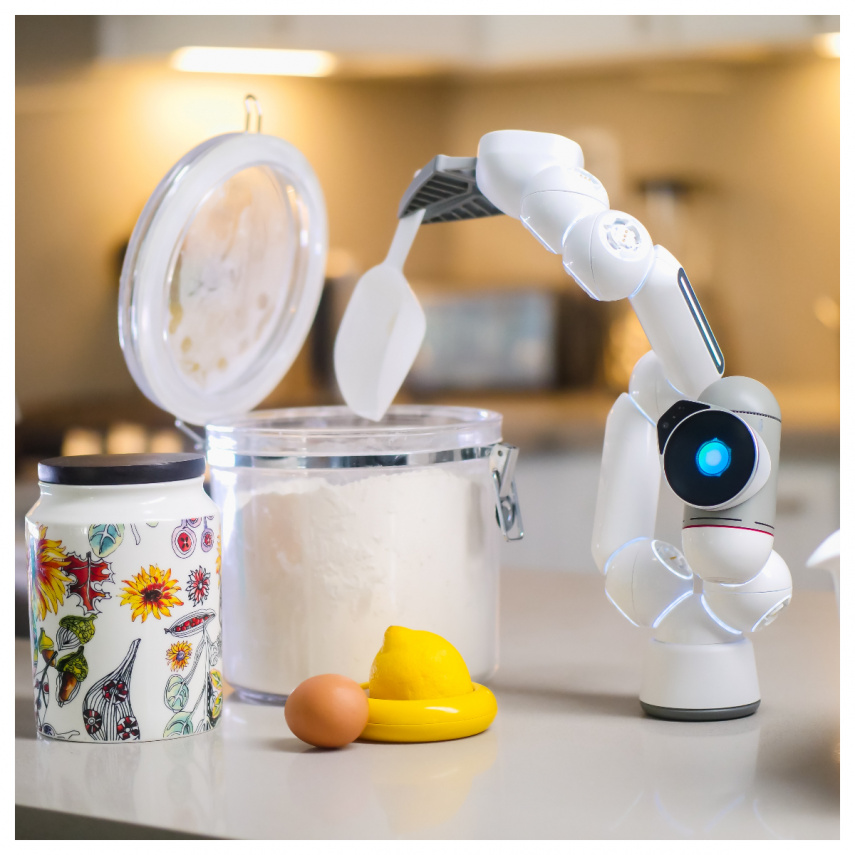
The difference between baking powder and baking soda really does matter a lot, especially when baking. They simply are NOT the same! Both amateur and professional bakers often tend to confuse between them - thanks to their similar appearances and names.
Today we will understand all the hows, whens, and whys of using baking soda and baking powder, the effect on your food if you use them interchangeably, and their substitutes. This article explains the difference between baking powder and baking soda in easy-to-understand language!
So, let's not make this rookie (yet common) mistake again. Ready?
What is Baking Soda?

Baking soda is a popular leavening agent that people usually use in baking. In chemical terms, it is known as sodium bicarbonate or bicarbonate of soda.
Baking soda is not acidic in nature. Once you combine it with an acid, it creates carbon-di-oxide gas (consider: bicarbonate of soda and vinegar volcanoes from your chemistry class).
How is Baking Soda used in baking?
Baking soda reacts with acids (like lemon or lime juice, buttermilk, sugar, yogurt, etc.) in any baking recipe, neutralizing the items while making carbon-di-oxide gas. This carbon-di-oxide gas creates bubbles which, in turn, cause the batter to rise. If not for baking soda, cakes and cupcakes would be flat, while cookies and brownies would be dense discs.
More baking soda does not mean more rise. So, be careful when using baking soda in your recipes. Because an excessive amount of baking soda with insufficient acid leads to leftover and unreacted soda, creating a bitter or soapy and metallic taste in the final goods.
What is Baking Powder?

Baking Soda and a dry acid together comprise Baking Powder, like sodium aluminum sulfate or cream of tartar. The Baking Soda doesn't react till combined with a liquid as the acid in the Baking Powder is dry.
What are the different kinds of baking powder and how do they affect the recipes?
The two completely different forms of Baking Powder are -
1. Single-acting Baking Powder refuses the primary rise of double-acting Baking Powder and solely reacts once it attains a high or warm temperature. Professional and skilled pastry chefs exclusively use this variety of Baking Powder in their recipes.
2. Double-acting Baking Powder is the foremost common and popular variety of Baking Powder and therefore is most generally accessible in supermarkets. In this sort of Baking Powder, the primary rise happens once the powder gets wet at a normal (room) temperature. And the second rise happens when you heat the Baking Powder.
How is Baking Powder used in baking?
When the recipe does not mention any additional acidic ingredients, you must use Baking powder in those recipes. Let's explain to you with an example - a simple cookie recipe that incorporates milk, eggs, flour, and Baking powder. Here the powder, along with the liquids (milk and eggs), will react and act as a rising agent.
Tip: Use one teaspoon of Baking powder with one cup of flour (consider it as a thumb rule!) if you feel like experimenting.
What are the similarities between Baking Soda and Baking Powder?
Baking Powder and Baking Soda are each leaveners formed from sodium bicarbonate which is a chemical. Once you fuse sodium bicarbonate with an acid, it produces carbon oxide gas (yes, we exhale it). This carbon oxide gas helps the cookies, cakes, or alternative baked foods to rise under high heat.
In a more detailed explanation - the batter expands when the carbon oxide gas starts oozing bubbles. This batter then rises while the oven or microwave heat makes the protein in the batter rigid. This process ensures that the food holds its shape even after you take it out from the appliance and cool it down (to apply frosting, maybe).
What are the differences between Baking Soda and Baking Powder?
In an easy-to-understand language - the primary difference between Baking Powder and Baking Soda is in their chemical nature.
While Baking Powder already consists of acid within its chemical constituents, the Baking Soda demands an additional acidic ingredient to fabricate the rising reaction. Therefore, it is always best to use Baking Soda in those recipes where you have acidic ingredients like lime or lemon juice, milk, or vinegar. And use Baking Powder in recipes like cornbread, biscuits, or pancakes, wherein you do not require acidic ingredients.
Baking Powder and Baking Soda are, however, common in recipes for cupcakes, cookies, brownies, cakes, and quick loaves of bread. They give the food a fluffy, airy, light, and porous texture making them flavorsome and appealing to the eyes!
Even though Baking Powder and Baking Soda each perform a similar end job when baking, their chemical constituents are totally dissimilar drawing a clear difference between baking powder and baking soda. You absolutely cannot substitute one for the other in your cooking recipes. The simple science behind it is that the manner they react and build air is poles apart, and not knowing (and understanding) the difference between Baking Powder and Baking Soda will tend to make your goodies flat and disappointing!
When should you use which one if there is a difference between baking powder and baking soda?
Bakers generally use Baking Soda in recipes that mention (or include) acidic ingredients, like citrus juice, buttermilk, cream of tartar, etc.
On the contrary, chefs usually use Baking Powder when the recipe does not include an additional acidic ingredient owing to the difference between baking powder and baking soda chemical formula.
To form a delectable baked goodie, you first have to find the correct balance between acid and base because baked mixtures vary in their acidic level.
Why do some recipes use both Baking Soda and Baking Powder?

At times certain recipes may feature both Baking Soda and Baking Powder to use the difference between baking powder and baking soda to their advantage. This happens when the recipe originally consists of an acid that you have to dilute using the Baking Soda. And then incorporate the Baking Powder to increase the overall volume required to adequately leaven the goodie.
There are three typical instances in which a recipe may use both Baking Powder and Baking Soda -
i. Use Baking Powder (as extra help) when your Baking Soda effectively neutralizes the acidic level but does not form sufficient carbon dioxide to completely leaven your batter.
ii. When your recipe specifically asks for acidic ingredients to add their flavor, using too much Baking Soda will totally neutralize that acidic flavor. In such cases, it is advisable to use both Baking Powder and Baking Soda to bring a tangy-zingy flavor and good shape to the final product.
iii. Baked goods turn brown much better in alkaline conditions. To do so, you can add Baking Soda to your recipe where Baking Powder is already the primary leavening agent.
Can I substitute Baking Powder for Baking Soda?
Short answer - Yes, you can.
When you do not have Baking Soda on you, you can substitute it with Baking Powder. Remember to use thrice the amount of Baking Powder as Baking Soda in your recipe.
For example, if your recipe asks for one tablespoon of Baking Soda, use three tablespoons of Baking Powder. Easy-peasy!
But, it isn't always that the substitute works successfully. It may backfire in either of the below-mentioned ways -
i. The end goodie can be too bitter or acidic. It means you did not measure the quantities correctly and ended up using too much Baking Powder.
ii. The end goodie can be solidified and dense. It means you did not measure the quantities correctly and ended up using too little Baking Powder.
iii. The end goodie can be overly salty. When substituting Baking Powder, make sure you watch for the salt quantity in your recipe. Since Baking Powder consists of more salt than Baking soda, you need to do some additional calculations! (sigh - Maths and Chemistry, yeah yeah, we get it)
What is a good substitute for both Baking Soda and Baking Powder?
In case your recipe demands both Baking Soda and Baking Powder (remember we explained to you the reason above?) AND you do not have either of them, use self-rising flour as their combined replacement.
Self-rising flour consists of salt, flour, and baking powder in it.
Moreover, you can substitute self-rising flour with the all-purpose flour in any recipe, one for the other.
How should I test Baking Powder?
If you are not sure whether your Baking Powder is fresh and effective, let's test it. All you have to do is follow the below steps and know the truth for yourself -
• Pour three tablespoons of lukewarm water into a bowl.
• Add 1/2 teaspoon of Baking Powder and stir it lightly.
• The mixture will turn mildly fizzy if your Baking powder is fresh and effective.
• If not, you know what to do with expired products.
How should I test Baking Soda?
If you are not sure whether your Baking Soda is fresh and effective, let's test it. All you have to do is follow the below steps and know the truth for yourself -
• Pour three tablespoons of distilled white vinegar into a bowl.
• Add 1/2 teaspoon of Baking Soda and stir it lightly.
• The mixture will immediately start to bubble if the soda is fresh and effective.
• If not, you know what to do with expired products.
Wrapping Up

I hope now you must have understood the primary difference between baking powder and baking soda and the related hows, whens, and whats.
Are you sure you will remember when to use Baking Soda vs. Baking Powder? Okay, worry not. We will let you in on a tiny secret.
Here is a super-easy way to differentiate between the two ingredients: Baking powder = a power that can lift baked goodies and already consists of Baking Soda. A stand-alone product.
Baking Soda = a help that fuses with other acidic ingredients and works mutually. Not a stand-alone product.
Have you ever been confused between Baking Soda and Baking Powder? Tell us your experiences in the comments section below!
ALSO READ: 7 Types of cheese: Tastiest guide for You





 JOIN OUR WHATSAPP CHANNEL
JOIN OUR WHATSAPP CHANNEL




































